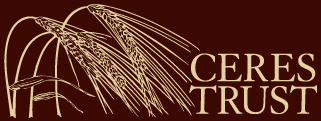Organic seed potato production and participatory breeding
[no_toc]The Ceres Trust Organic Research Initiative Final Research Report
Investigators:
Amy O. Charkowski; UW-Madison Plant Pathology
Ruth Genger, UW-Madison Plant Pathology
Russell Groves, UW-Madison Entomology
Shelley Jansky, USDA-ARS and UW-Madison Horticulture
Douglas Rouse, UW-Madison Plant Pathology
Project locations:
Wisconsin, Minnesota, North Dakota, Michigan, Ohio
Potato is the fourth largest food crop in the world and the leading vegetable crop in the United States. There are limited breeding and trialing efforts to identify potato varieties suitable for organic farms, in part because federal and state support for agricultural research continues to decline and public financial support for plant breeding is low. Since potato is genetically complex (an out-crossing tetraploid), vegetatively propagated, and almost an orphan crop with respect to privately-funded breeding efforts, development of improved potato varieties, especially for organic agriculture, has been slow. Our long term goal is to develop a self-sustaining, farmer-directed program that combines breeding for organic potato production and early generation organic seed potato production.
The objectives of this project were to: (1) trial heirloom and specialty potato varieties and breeding lines on organic farms in the Midwest; and (2) optimize organic seed potato production systems to maximize yield and tuber health. Thanks to continued support from The Ceres Trust, we are continuing with this work. This project will improve organic farming systems by continuing to develop a potato breeding program and seed potato system that serves the organic industry in the Midwest. Wisconsin organic growers continue to have difficulty obtaining seed potatoes for heirloom and specialty varieties, and are eager to find varieties suited to organic production. Availability of healthy planting stocks of potato varieties that perform robustly on organic farms will make organic farms more productive and profitable. The most effective and least expensive way to keep planting stocks healthy is to use varieties resistant to common potato diseases and pests. Our research greatly expands the research that has been done on the performance of potato varieties on organic farms, including the pest and disease resistance of potato varieties popular with organic farmers. We will continue our research into potato variety performance across multiple organic production environments, and extend this research into the development of “tomorrow’s heirlooms” – potato varieties that combine the sensory characteristics of heirloom varieties, including color, shape, taste and texture, with production characteristics desired by organic farmers.
